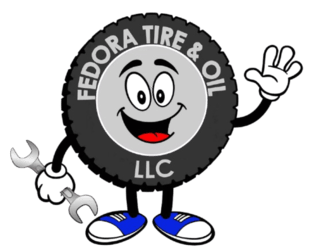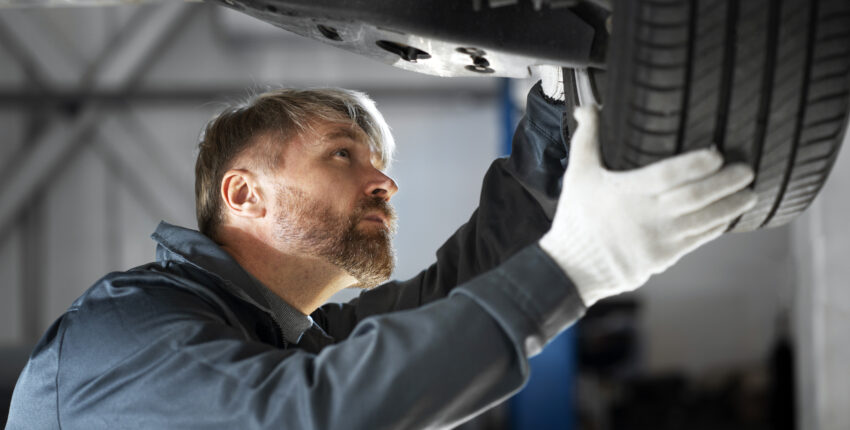When most drivers think about car maintenance, they picture oil changes, brake checks, or maybe even wheel alignments. But what about your tires? They are the only part of your car that actually touches the road, and yet they’re often overlooked until something goes wrong. Your tires affect everything from fuel efficiency and ride comfort to handling and stopping power. Simply put, your vehicle’s safety depends on them.
Waiting too long for tire replacement can lead to dangerous blowouts, poor traction in bad weather, and higher repair costs down the road. The good news is that your tires give you plenty of warning signs before reaching that point—you just need to know what to look for.
Here are the top signs you may need new tires, and why staying ahead of these problems matters.
Tread Depth That’s Too Low
Tread depth is one of the biggest indicators of tire health. Tire tread is designed to grip the road and channel water away to reduce the risk of hydroplaning. Once it wears down too far, your tires can no longer do their job effectively.
A quick way to check tread is with the penny test. Insert a penny into the grooves with Lincoln’s head facing down. If you can see the top of his head, it’s time to think about tire replacement. Tires also have tread wear indicator bars built in, and when the tread is flush with these bars, you’re due for new ones.
Driving on worn tread makes it harder to stop quickly and reduces control on wet or icy roads—two serious vehicle safety concerns.
Cracks or Bulges in the Sidewalls
Your tires don’t just wear down on the tread. The sidewalls can also show signs of damage. Cracks, cuts, or bulges in the sidewall signal that the tire structure has been compromised.
Bulges, in particular, are caused by impacts like hitting a curb or pothole. They indicate that air has pushed through the inner layers of the tire, weakening its integrity. A tire in this condition can fail suddenly, especially at highway speeds. If you notice bulges or cracks, replacement should happen right away.
Excessive Vibration or Shaking
A little vibration while driving is normal, especially on rough roads. But if you notice persistent shaking through the steering wheel or seat, it could be your tires telling you something’s wrong.
Uneven wear, internal separation, or poor balance can all cause vibration. While it may also point to alignment or suspension issues, the tires are often the root cause. Either way, it’s a signal that you should get your car checked. Ignoring it could lead to uneven wear across all four tires, reducing their lifespan and safety.
Tires That Are Too Old
Even if your tires look fine, age is a factor many drivers forget about. Rubber degrades over time, even if you don’t drive much. Heat, sunlight, and normal exposure to the elements break down the materials that keep your tires strong.
Most manufacturers recommend tire replacement every six to ten years. You can check your tire’s age by looking at the DOT code stamped on the sidewall. The last four digits indicate the week and year the tire was manufactured. For example, “3418” means the tire was made in the 34th week of 2018.
If your tires are six years or older, it’s best to have them inspected by a trusted shop like Fedora Tire & Oil to determine if they’re still safe.
Uneven Tread Wear
Tires should wear down evenly across the surface. If you notice bald patches, scalloping, or one side wearing faster than the other, it means something is off.
This uneven wear could be caused by improper inflation, bad suspension, or wheel misalignment. But regardless of the cause, uneven wear weakens the tire’s ability to grip the road. Once that happens, the safest option is to replace them.
Longer Stopping Distances
Have you noticed your car taking longer to stop at intersections? Tires with worn tread don’t grip the pavement as well, especially in wet conditions. That means your braking distance increases significantly, which can be dangerous if you need to stop suddenly.
Even if your brakes are in good shape, bad tires can make them less effective. Since braking is one of the most critical aspects of vehicle safety, this is a sign you can’t afford to ignore.
Trouble Driving in Rain or Snow
Fresh tires are designed with tread patterns that help cut through water and grip slippery surfaces. As the tread wears down, those channels become shallow, and traction suffers.
If your car feels like it’s slipping around in the rain or struggling for grip in snow, it’s a clear sign your tires aren’t doing their job anymore. This is especially important in South Dakota, where weather conditions can be unpredictable. Healthy tires give you confidence in every season.
Constantly Losing Air Pressure
If you’re filling up your tires more often than usual, it may not just be the weather. Slow leaks from punctures, valve stem damage, or sidewall cracks can cause constant air loss.
Driving with underinflated tires creates more friction, which leads to faster wear, overheating, and reduced fuel economy. It also increases the chance of a blowout. If your tire won’t hold pressure despite refills, replacement is usually the safest choice.
Why Timely Tire Replacement Matters
Tire replacement isn’t just about keeping your car running smoothly—it’s about protecting yourself, your passengers, and everyone else on the road. Here’s why replacing tires on time matters:
- Improved vehicle safety: Fresh tires offer maximum traction, shorter stopping distances, and more control.
- Reduced risk of blowouts: Damaged or worn tires are more likely to fail unexpectedly.
- Better fuel economy: Healthy, properly inflated tires reduce rolling resistance, saving you money at the pump.
- Long-term savings: Replacing worn tires before they cause uneven wear or suspension damage prevents costly repairs later.
Your tires are a direct link between your car and the road. Keeping them in good condition is one of the smartest investments you can make in your vehicle’s safety.
Tires rarely fail without warning. From low tread depth and uneven wear to sidewall damage and constant air loss, the signs are usually easy to spot if you know what to look for. The key is acting before it’s too late.
At Fedora Tire & Oil, we take tire safety seriously. Whether you drive a family car, truck, or even farm equipment, our skilled mechanics are here to keep your tires in top shape. We use quality parts, proven repair techniques, and honest recommendations you can trust. Plus, with reliable hazard warranties on select tires, you can drive with confidence knowing you’re protected.
If you’ve noticed any of the signs above or simply want peace of mind, stop by our shop right off Hwy 34 in Fedora, SD. Our friendly, local team will check your tires, walk you through what they need, and get you safely back on the road. Call today or request an appointment online—it’s quick, easy, and the best way to protect your vehicle safety.

